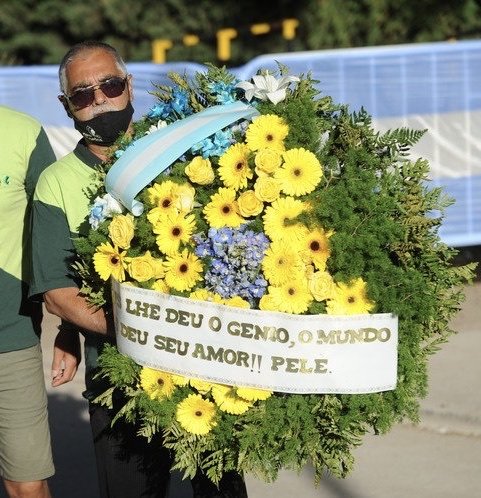The English were furious, but in Argentina — still suffering the humiliation of its 1982 defeat by Britain in the short war over the Falkland Islands, which Argentina calls Malvinas and claims as its own — Mr. Maradona was lauded.
“A narrative is created that the goal wasn’t illegal because in reality it was God doing justice after the defeat in the 1982 war,” said Lívia Gonçalves Magalhães, a historian at Federal Fluminense University in Brazil who studies the intersection of soccer and politics in South America.
“It was the happiest moment of my life,” said Juan José Azcurra, 67, his tears giving way to a smile as he recalled the goal. “I will never forget it.”
That World Cup was doubly sweet because “no one had faith in the team and in the end everything they did was marvelous,” said Veronica Moreira, an anthropologist who studies sport at the National Scientific and Technical Research Council, an Argentine government agency. Argentina’s victory in the final against West Germany cemented Mr. Maradona’s position as the leader who took the underdog team to victory.
1 đoạn báo nói về tại sao Maradona được coi trọng ở Argentina. Bởi vì năm 1982, người dân Argentina vẫn cảm thấy nhục nhã vì thua trận tranh chấp đảo Flkland. Trận 1986, như là 1 sự rửa nhục, và họ coi Bàn tay của chúa là mang công bằng lại với họ dù bàn thắng được coi là không hợp lệ. Đặc biệt với người sống thời đó, ông già 67 tuổi nói là
"Nó là khoảnh khắc hạnh phúc nhất đời tôi."
Mara được dân Bồ, Tây,,...coi như thánh vì đập dân Anh được 1 phát vỡ mũi. Đôi khi danh tiếng ông ấy cũng đến từ sự yêu thích của dân Latin, chứ dân châu Âu em không nghĩ họ nâng lên cao quá.

Khoảng năm 2010 tới nay, em thấy bóngđá châu Mĩ gặp bọn châuÂu làđứt, tụt hậu về chiến thuật, con người. BọnchâuÂu nó sách vở bài bản. BọnĐức gặp Bra,Argen...nóđập như tenis.



 Khoảng năm 2010 tới nay, em thấy bóngđá châu Mĩ gặp bọn châuÂu làđứt, tụt hậu về chiến thuật, con người. BọnchâuÂu nó sách vở bài bản. BọnĐức gặp Bra,Argen...nóđập như tenis.
Khoảng năm 2010 tới nay, em thấy bóngđá châu Mĩ gặp bọn châuÂu làđứt, tụt hậu về chiến thuật, con người. BọnchâuÂu nó sách vở bài bản. BọnĐức gặp Bra,Argen...nóđập như tenis.


